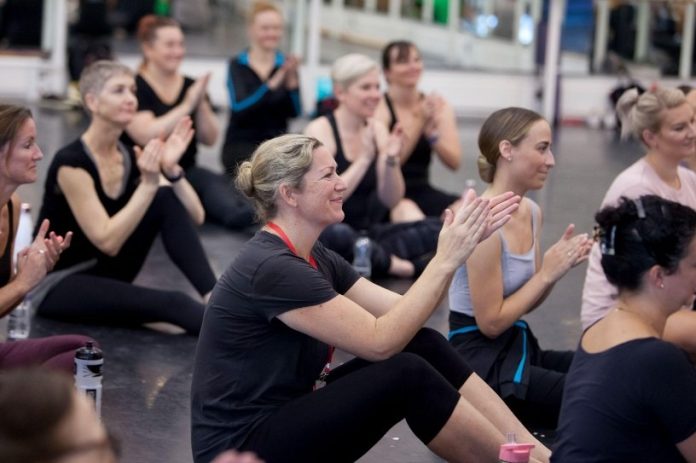The Royal Ballet School is renowned for helping its students become outstanding ballet dancers and choreographers. To achieve this, the School teams its specialist training with several care provisions that ensure students can enjoy a happy, healthy training experience.
The School has implemented over 40 provisions to enhance student experience over the past 10 years. These provisions focus on healthcare, safeguarding, studio culture, and teacher training. Each provision enhances the school experience that students enjoy, as reflected in the School’s latest ISI report.
Here’s a timeline of the provisions that The Royal Ballet School has implemented over the past 10 years.
Provisions Implemented in 2013-14
In 2013-14, The Royal Ballet School:
- Introduced ad hoc counselling that students can access as and when they need support. This improved access to counselling gives students peace of mind that emotional guidance from a professional counsellor is available whenever they need it.
Provisions Implemented in 2014-15
In 2014-15, The Royal Ballet School:
- Restructured all operations, taking a whole-school approach to revamp all departments and offerings.
- Appointed a new artistic director, academic principal, assistant principal, and pastoral team. This well-trained team provides a high level of age-appropriate pastoral support to all students.
- Set up a school council to amplify student voices and focus on student feedback.
- Implemented new parent and carer communications on safeguarding matters. These communications include regular reminders on how to raise concerns and the latest safeguarding information from the Local Safeguarding Children’s Partnership (LSCP).
- Introduced a new approach to artistic teaching. This approach focuses on modern teaching pedagogy, ballet class structure, and positive studio culture.
- Began including Royal Ballet Company professionals in assessment panels, welcoming feedback from these specialists to improve training outcomes.
- Launched its Healthy Dancer Programme. This programme brings together a team of 20 healthcare professionals who offer on-site support to enhance students’ well-being and performance. They also conduct on-site research to inform the School’s ongoing education and help safeguard student health.
The Healthy Dancer Programme
The Healthy Dancer Programme reflects The Royal Ballet School’s commitment to investing in students’ well-being.
The professionals in the programme’s healthcare team include a healthcare manager, clinical psychologist, counsellors, rehabilitation ballet instructors, physiotherapists, performance nutritionists, sports physicians, strength and conditioning coaches, school nurses, and Pilates instructors.
Aside from providing physical, emotional, and psychological support, professionals from this team also create a bespoke conditioning programme for each student. They guide students through termly screening exercises to collect data that informs these individual programmes.
Provisions Implemented in 2015-16
In 2015-16, The Royal Ballet School:
- Engaged additional healthcare resources for its Pilates and sports scientist provision.
- Launched its Smartabase system. The School’s healthcare team and the healthcare teams at The Royal Ballet and Birmingham Royal Ballet use this research database. The research system enables the School to collaborate with both companies to share data and insights.
- Introduced CRY (Cardiac Risk in the Young) screening for all Upper School students. This electrocardiogram screening can recognise most cardiac abnormalities, helping students receive diagnoses as easily as possible.
- Enhanced its annual safeguarding training for staff, governors, volunteers, and students.
- Made monthly safeguarding updates to make sure all staff can recognise signs of abuse and know how to report a concern.
- Opened more performance opportunities in end-of-year performances to increase student participation and inclusion.
Provisions Implemented in 2016-17
In 2016-17, The Royal Ballet School:
- Teamed up with the English Institute of Sport (now known as the UK Sports Institute) to access its network of nutritionists. These nutritionists work with the School’s catering team and students for two days a week.
- Introduced in-house mental health and counselling support to make these mental health provisions even more accessible to students.
- Opened bespoke Upper School accommodation in Central London to give older students more independence in a welcoming home-from-home environment.
- Appointed a new academic principal.
- Established a new assessment approach. The School defined its new assessment criteria and process in a policy that it communicated to all students and parents/carers.
- Began scheduling parent meetings to explain how the School assesses ballet progress.
- Replaced the competition element of the Choreographic Programme with a mentoring programme. This programme also sees experts in the field provide students with essential feedback. This new approach empowers students and enhances student well-being.
The Choreographic Programme
The Royal Ballet School doesn’t only help students develop their classical ballet and other dance skills. Through the Ninette de Valois Choreographic Programme, students also learn how to become creative choreographers.
The School has replaced the competitive aspect of this programme with a mentoring approach. Now, mentors guide students as they develop a choreographic piece, a process that involves studio research and improvisation.
Under this mentorship, students spend a few weeks working as choreographers, considering every element that makes a production successful. These elements may include staging, props, lighting, and costume design.
Students cast their peers in their choreographic work. They coach these peers, who then perform the routine to an audience and a panel of mentors and guest artists, who offer helpful feedback.
The panel selects the pieces they feel have the most potential. Students then go on to perform these pieces at the School’s Summer Performances, which take place at Opera Holland Park and on the Royal Opera House main stage.
Provisions Implemented in 2017-18
In 2017-18, The Royal Ballet School:
- Opened three new staff roles to further student support. These roles included a therapist who is also a clinical psychologist, a mental health lead, and a designated safeguarding lead (DSL).
- Developed its physiotherapy, Pilates, and rehabilitation resources.
- Launched its annual safeguarding audit, which the Richmond and Kingston Local Safeguarding Children’s Partnership and governors approved.
- Implemented the MyConcern app for staff to report and handle pastoral and safeguarding concerns.
- Increased its liaison with The Royal Ballet and Birmingham Royal Ballet. This increased collaborative work includes delivering training to external staff who will work with students.
- Created a learning agreement for artistic staff and students to clearly outline boundaries and expectations.
Provisions Implemented in 2018-19
In 2018-19, The Royal Ballet School:
- Devised new policies to provide transparent communications on its assessment processes and training offers.
- Started hosting termly safeguarding meetings between the designated safeguarding lead (DSL) and deputy DSLs. These meetings ensure staff maintain a consistent approach to handling safeguarding concerns and review cases.
Provisions Implemented in 2019-20
In 2019-20, The Royal Ballet School:
- Introduced Tootoot, an anonymous reporting system. Students can use this system to speak out about a concern if they don’t feel comfortable reporting the concern in person.
- Launched a full in-house catering provision for Year 1 and 2 Upper School students to ensure they receive healthy, balanced meals.
Provisions Implemented in 2020-21
In 2020-21, The Royal Ballet School:
- Modelled its Continuing Professional Development Programme for full-time artistic teachers on the National Teaching Standards.
- Introduced studio expectations for all students, teachers, visiting teachers, and choreographers. Students helped develop these expectations.
- Created and agreed new safeguarding protocols with The Royal Ballet and Birmingham Royal Ballet. These safeguarding protocols safeguard Upper School students during their work experience placements.
Provisions Implemented in 2021-22
In 2021-22, The Royal Ballet School:
- Introduced termly student rep meetings with the principal and assistant principal. During these meetings, student reps report any student concerns and discuss the wider student body’s overall school and studio experience.
- Implemented face-to-face, pre-arrival meetings between all visiting teachers and members of the safeguarding team.
- Involved the principal, assistant principal, and designated safeguarding lead (DSL) in the delivery of continual professional development (CPD) for artistic staff.
- Restructured its Artistic Programmes to improve the transparency of progression within the School. Four distinct programmes replaced the eight-year programme and annual assessments.
Restructured Artistic Programmes
Students audition to enter each of the four new programmes, which include the:
- Foundation Programme (White Lodge). This programme marks the first stage in a student’s vocational training. Students aged 11-14 follow a curriculum that focuses on classical ballet and introduces a broad spectrum of other dance styles.
- Development Programme (White Lodge). This programme builds on the Foundation programme, offering increasingly specialised classical ballet training. Students aged 14-16 show the potential to progress to Upper School and other leading vocational schools.
- Vocational Programme (Upper School). This programme is for students who have the potential to progress to a classical ballet career at the highest level. Students aged 16-18 follow this programme.
- Pre-professional Programme (Upper School). This programme fills a student’s final year of training. Students aged 18-19 focus on professional repertoire, especially new and heritage repertoire of the Royal Ballet Companies. They also have opportunities to undertake work experience with The Royal Ballet and Birmingham Royal Ballet and prepare to launch their professional careers.
Areas of teaching include classical ballet, pointe work, character, contemporary, folk dances, variations and repertoire, improvisation and choreography, and Pilates. Older students also practise pas de deux, follow strength and body conditioning practices, and complete the Upper Body Programme.
Aside from the four core programmes, students get involved in the Ninette de Valois Choreographic Programme and Creative Artist Programme. They also enjoy several performance opportunities.
Provisions Implemented in 2022-23
In 2022-23, The Royal Ballet School:
- Moved the full responsibility of upholding a positive student experience to the principal, who oversees academic, artistic, pastoral, and healthcare teams.
- Evolved its organisational values to better represent its reputation as one of the world’s most celebrated centres for classical ballet training.
Organisational Values
The Royal Ballet School’s new organisational values include:
- Striving for excellence. Bringing integrity, passion, and dedication to its work, the School consistently aims to achieve the highest standards in classical ballet training.
- Nurturing individuals. Students blossom into dancers over up to eight years with the School, which believes in the unique potential of every student. The School nurtures each student from a holistic point of view, providing all the support they need to enjoy a career as a healthy, resilient dancer.
- Actively widening access. The School believes that young people everywhere should have access to a creative dance education. By extension, the School creates many opportunities for people to engage with ballet. These opportunities include Primary Steps on Demand, which enables children all over the world to partake in on-demand ballet classes.
- Our heritage nourishes our future. While the School preserves its rich heritage and extensive history, it also adopts a future-facing approach to classical ballet. The School encourages modern, student-centred teaching approaches and aims to positively impact both the ballet sector and wider society.
- Always innovating. Continuous evolution is important to the School, which upholds an innovative outlook to stay at the forefront of the ballet sector. The School contributes to the global ballet agenda and builds partnerships to share knowledge and research across this industry.
About The Royal Ballet School
The Royal Ballet School provides students with the technical and creative training, physical and emotional support, and positive studio culture they need to develop into professional dancers. Students shape their skills in several dance styles to complement their prowess in classical ballet. Many go on to enjoy esteemed performance and choreographic careers with notable companies.
Graduates of The Royal Ballet School include Darcey Bussell, Margot Fonteyn, Kenneth MacMillian, Marianela Núñez, Anya Linden, Edward Watson, Vadim Muntagirov, Marcelino Sambé, Lauren Cuthbertson, Jonathan Cope, and Christopher Wheeldon.
Keep up with The Royal Ballet School’s latest developments.
Disclaimer: This article contains sponsored marketing content. It is intended for promotional purposes and should not be considered as an endorsement or recommendation by our website. Readers are encouraged to conduct their own research and exercise their own judgment before making any decisions based on the information provided in this article.





























![“Does Everyone Hear Me OK?”: How to Lead Virtual Teams Effectively iStock-1438575049 (1) [Converted]](https://www.europeanbusinessreview.com/wp-content/uploads/2024/11/iStock-1438575049-1-Converted-100x70.jpg)




